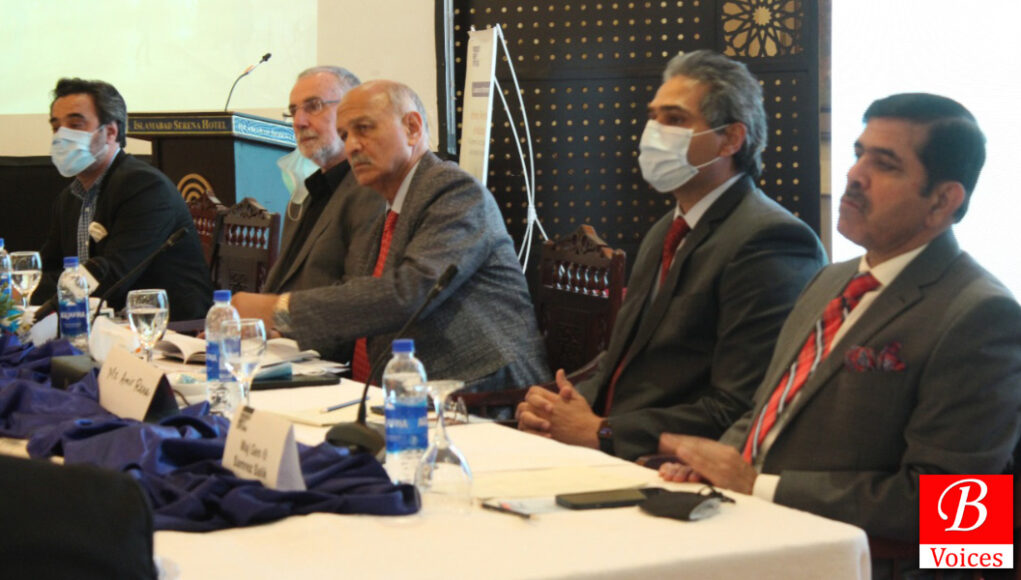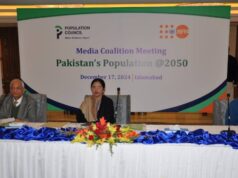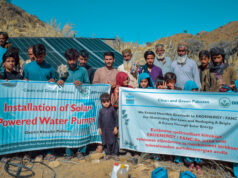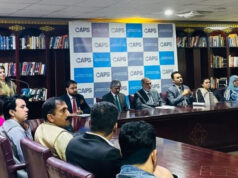Islamabad: Friedrich Ebert Stiftung (FES) in collaborations with Pakistan Institute for Peace Studies (PIPS) launched two reports on counter-terrorism and governance in Pakistan. The launch of two reports was held by the cooperation of German institute Friedrich Ebert Stiftung and the Pakistan Institute for Peace Studies. The “definition of terrorism in Pakistan” and the “strengthening of Governance in Pakistan” were discussed with scholars, journalists, and students.
The country Director introduced the Organization’s Role of FES in counter-terrorism, sectarian conflicts, and how terrorism affects social, economic, and biological developments. According to him lack of social justice in Pakistan is the root cause of terrorism. “People don’t wake up in the morning and decide to kill people but there is a systematic, psychological and sociological scenario behind it,” said Dr. Jochen Hippler. While defining the reasons for terrorism acts in Pakistan, he promised to work with regional people to fight terrorism.
By addressing these issues senator Mushahid Hussain Sayed told that in the nineties Police had a successful operation against terrorists in Karachi and Punjab. He further added that issues should be solved politically.
Director PIPS Amir Rana brought attention to the challenges faced by Pakistan such as security risks, stabilizing peace, and the current Afghanistan situation. He highlighted that how the multilayer problems of terrorism and extremism can be solved by implementing the existing framework, initiating policy, political support, and focusing on a neglected area of the National Action Plan. Several points were stressed by Rana that Why is the state still confused to deal with religious institutions? this is the duty of parliament to initiate the definition of terrorism also National Action Plan should be owned by the political leadership of the country.
Imtiaz Gul suggested some improvement in the legislation because Pakistan is now facing proxy terrorism and the cold war between China and the US will affect Pakistan.
Maj General (R) Samarez Salik, who was involved in the physical operation against terrorism as well as have studied and taught on the subjects briefly introduced his experience and struggle to bring peace by fighting terrorism in Pakistan Army. As a military expert, he also compared Pakistan’s Army with the US army in terms of fighting terrorism.
FES Program Coordinator Humayoun Khan provided more suggestions about the report and then several well-known personalities and analysts which include Aoun Saih, Imtiaz Gul, Journalist Sabookh Syed, researcher Dr. Shabana, Quad-e-Azam University dean dr. Zafar Nawaz Jaspal, Country director of search common grounds Asad Jaan, and senior vice president of Minhaj-ul-Quran women’s league Razia Naveed spoke about the issue. During the conversation, all the Speakers kept on insisting that NAP is an important plan because it doesn’t just represent certain groups or sects but it includes the whole nation and national institutions.
Share your comments!








